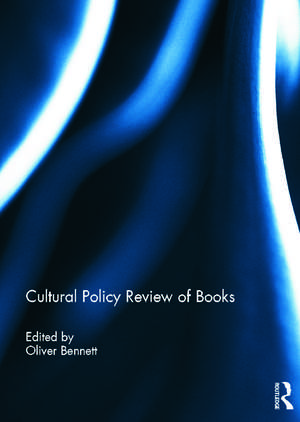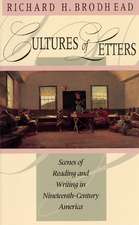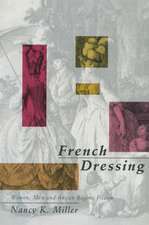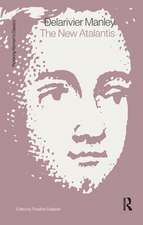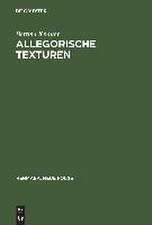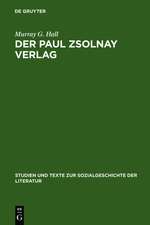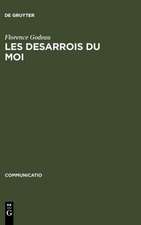Cultural Policy Review of Books
Editat de Oliver Bennetten Limba Engleză Hardback – 16 ian 2012
The Cultural Policy Review of Books offers a fascinating insight into the intellectual formation of many of the leading figures that have contributed to this field. Invited to write a short review essay on the book that had most influenced their thinking, 41 academics and researchers from around the world reveal what they consider to be essential reading.
Including essays on Bourdieu, de Certeau, Foucault, Gramsci, Habermas, and Williams, as well as many lesser known writers, the collection throws new light on the intellectual underpinning of cultural policy studies. It will be of interest not only to researchers, students and teachers in this field, but to all those looking to understand the forces that shape the culture of modern societies.
| Toate formatele și edițiile | Preț | Express |
|---|---|---|
| Paperback (1) | 292.99 lei 6-8 săpt. | |
| Taylor & Francis – 22 mai 2017 | 292.99 lei 6-8 săpt. | |
| Hardback (1) | 763.26 lei 6-8 săpt. | |
| Taylor & Francis – 16 ian 2012 | 763.26 lei 6-8 săpt. |
Preț: 763.26 lei
Preț vechi: 1026.86 lei
-26% Nou
Puncte Express: 1145
Preț estimativ în valută:
146.04€ • 152.50$ • 120.60£
146.04€ • 152.50$ • 120.60£
Carte tipărită la comandă
Livrare economică 15-29 aprilie
Preluare comenzi: 021 569.72.76
Specificații
ISBN-13: 9780415695473
ISBN-10: 0415695473
Pagini: 128
Dimensiuni: 174 x 246 mm
Greutate: 0.4 kg
Ediția:1
Editura: Taylor & Francis
Colecția Routledge
Locul publicării:Oxford, United Kingdom
ISBN-10: 0415695473
Pagini: 128
Dimensiuni: 174 x 246 mm
Greutate: 0.4 kg
Ediția:1
Editura: Taylor & Francis
Colecția Routledge
Locul publicării:Oxford, United Kingdom
Public țintă
Postgraduate and ProfessionalCuprins
Chapter 1 Michel de Certeau, The practice of everyday life, Jeremy Ahearne; Chapter 2 Janet Minihan, The nationalization of culture: the development of state subsidies to the arts in Great Britain, Eleonora Belfiore; Chapter 3 James Buchan, Capital of the mind: how Edinburgh changed the world, Peter Bendixen; Chapter 4 Raymond Williams, Culture and society 1780–1950, Oliver Bennett; Chapter 5 Fred R. Myers, Painting culture: the making of an Aboriginal high art, Tony Bennett; Chapter 6 Peter Hall, Cities in civilization, Franco Bianchini; Chapter 7 Charles Dickens, Hard times: for these times, Chris Bilton; Chapter 8 Milton C. Cummings and Richard S. Katz (eds), The patron state: government and the arts in Europe, North America, and Japan, Jennifer Craik; Chapter 9 Joseph A. Schumpeter, Capitalism, socialism, and democracy, Stuart Cunningham; Chapter 10 Michel de Certeau, Culture in the plural, Milena Dragi?evi? Šeši?; Chapter 11 Jürgen Habermas, The structural transformation of the public sphere: an inquiry into a category of bourgeois society, Peter Duelund; Chapter 12 Tony Bennett, Culture: a reformer’s science, Lisanne Gibson; Chapter 13 Anthony Storr, The dynamics of creation, Christopher Gordon; Chapter 14 Hugh Jenkins, The culture gap: an experience of government and the arts, Clive Gray; Chapter 15 Russell Keat, Cultural goods and the limits of the market, David Hesmondhalgh; Chapter 16 W. McNeil Lowry, The performing arts and American society, Stanley N. Katz; Chapter 17 Howard Becker, Art worlds, Nobuko Kawashima; Chapter 18 Laurie Ouellette, Viewers like you? How public TV failed the people, Justin Lewis; Chapter 19 Joffre Dumazedier, Toward a society of leisure, David Looseley; Chapter 20 Ernst Kris and Otto Kurz, Legend, myth, and magic in the image of the artist: a historical experiment, Per Mangset; Chapter 21 Naomi Klein, No logo: taking aim at the brand bullies, Jim McGuigan; Chapter 22 Antonio Gramsci, Prison notebooks, Paola Merli; Chapter 23 Michel Foucault, The birth of biopolitics: lectures at the Collège de France, 1978–79, Toby Miller; Chapter 24 James Heartfield, The death of the subject explained, Munira Mirza; Chapter 25 Milton C. Cummings, Jr. and Richard S. Katz (eds), The patron state: government and the arts in Europe, North America and Japan, Kevin V. Mulcahy; Chapter 26 Pierre Bourdieu, Distinction: a social critique of the judgement of taste, Graham Murdock; Chapter 27 Simon Frith, Sound effects: youth, leisure and the politics of rock ‘n’ roll, Andy C. Pratt; Chapter 28 Pierre Bourdieu, The field of cultural production: essays on art and literature, Sigrid Røyseng; Chapter 29 Alan Peacock, Paying the piper: culture, music and money, Michael Rushton; Chapter 30 Quintin Hoare and Geoffrey Nowell Smith (eds), Selections from the prison notebooks of Antonio Gramsci, Philip Schlesinger; Chapter 31 John Myerscough, The economic importance of the arts in Britain, Sara Selwood; Chapter 32 Pierre Bourdieu, Alain Darbel and Dominique Schnapper, The love of art: European art museums and their public, Dorte Skot-Hansen; Chapter 33 Rosemary Coombe, The cultural life of intellectual properties: authorship, appropriation, and the law, Joost Smiers; Chapter 34 Jim McGuigan, Rethinking cultural policy, Alan Stanbridge; Chapter 35 Geoff Mulgan and Ken Worpole, Saturday night or Sunday morning? From arts to industry: new forms of cultural policy, Deborah Stevenson; Chapter 36 Richard A. Etlin, In defense of humanism: value in the arts and letters, David Throsby; Chapter 37 Erika Fischer-Lichte, History of European drama and theatre, Hans van Maanen; Chapter 38 Pierre Bourdieu, La distinction: critique sociale du jugement, Geir Vestheim; Chapter 39 Raymond Williams, The long revolution, Michael Volkerling; Chapter 40 Denise Meredyth and Jeffery Minsion (eds), Citizenship andcultural policy, Li-Jung Wang; Chapter 41 Néstor García Canclini, Consumers and citizens: globalization and multicultural conflicts, George Yúdice;
Descriere
The Cultural Policy Review of Books throws new light on the intellectual underpinning of cultural policy studies. With short essays on Bourdieu, de Certeau, Foucault, Gramsci, Habermas, and Williams, as well as on many lesser known writers, leading academics and researchers from around the world tell us about the thinkers that have influenced them most and why we should continue to read them.
This book was originally published as a special issue of International Journal of Cultural Policy.
This book was originally published as a special issue of International Journal of Cultural Policy.
